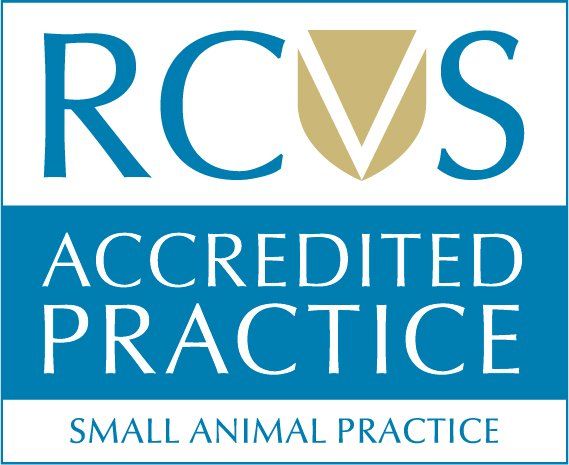Helping our pets grow old gracefully
Cognitive Dysfunction in our pets – Canine and feline dementia
With advances in veterinary medicine and nutrition pets are living longer lives. Pet owners now get to spend more time with their wonderful companions. As they age owners expect their pets to 'slow down', but some behavioural changes can be unexpected. Making owning an older cat and dog stressful and potentially challenging.
In the past these behavioural changes were categorised under the 'ageing process'. However, in recent years, unusual changes in behaviour have been attributed to Cognitive Dysfunction Syndrome (CDS). This is as a result of decline in cognitive abilities caused by ageing changes in the brain.
Age catches up with us all. As a pet owner, there comes a time where we have to make a life changing, and heart wrenching decision. Sometimes this may be driven by progressive changes in behaviour. Toilet trained pets may begin having accidents in the house. They may become restless and disorientated. Even forgetful. So long as your pet has quality of life there are ways these behaviours can be managed. Cognitive Dysfunction isn't always the end of our journey with our four legged friends.
Signs of cognitive dysfunction
Symptoms of CDS in cats and dogs present similarly.
These include:
Confusion, disorientation and appearing lost in familiar surroundings
Wandering aimlessly
Staring and standing in corners
Accidents in the house or missing the litter tray
Disrupted sleeping patterns
Vocalising at night
Altered interest in food
Changes in behaviour
Changes in learning and activity levels
If you notice any of these symptoms in your cat and dog, it is vital to book an appointment with the Vet. They can determine if there are any other health issues which may have similar symptoms. CDS will only be diagnosed once all other illnesses have been ruled out.
Can Cognitive Dysfunction be treated?
Unfortunately CDS cannot be cured. The signs and symptoms can however be reduced with suitable management. Making changes to your pets environment, diet and routine can help. There are also some drug therapies available.
Our vets will be more than happy to discuss the options with you. Please give us a call on 01395 208620 to book in an appointment
What can be done to help?
Once CDS has been diagnosed and other medical issues ruled out. Steps can be taken to help with your pets quality of life.
Dogs:
Keep you dog fit and at a healthy weight throughout its life
Help stimulate you dog with toys, play and human interaction if they
are interested
Reduce the distance of walks and increase the number
Remind your dog of simple commands frequently
Exaggerate arm movements and signs as hearing deteriorates
Use visual markers
Accompany your dog outside should they begin toileting in the house,
almost restart toilet training as you would a puppy
Cats:
Increase human interaction
Help stimulate you cat with toys, play and human interaction if they
are interested
Keep bowls in the same place to avoid confusion
Provide comfortable and accessible beds
Ensure litter trays are kept in the same place with low sides
Allow for peace and quiet away from the hustle and bustle of home
life
It may be necessary to restrict their environment to one room
JURASSIC VETS SIDMOUTH
01395 208620
contact@jurassicvets.com
12 Woolbrook Road
Sidmouth, EX10 9UU
OPENING HOURS
- Mon - Fri
- -
- Saturday
- -
- Sunday
- Closed
JURASSIC VETS COLYTON
01297 613000
contact@jurassicvets.com
Town Mill,Rosemary Lane
Colyton, EX24 6LS
OPENING HOURS
- Mon, Fri
- -
- Tue - Thu
- -
- Sat - Sun
- Closed
Jurassic Vets Limited - registered in England and Wales | Company Registration Number 12993183 | Registered Office: 12 Woolbrook Road, Sidmouth, Devon, EX10 9UU








